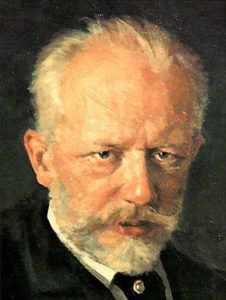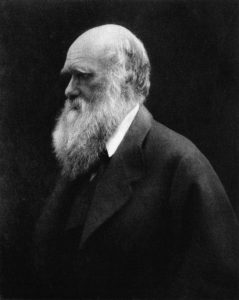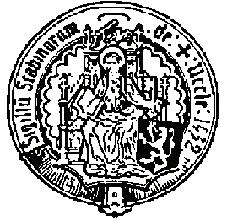How foolish,
those who imagine
that the death to dread
is their own,
that the life whose eternal loss
is unthinkable, unbearable,
is theirs.
I don’t seek an exception 2010-09-01
I don’t seek
an exception
Not when others
far more deserving than me
especially those
for whom I would have yearned it
immeasurably more
than for me
have been denied
an exception
It may be that
like gasping for breath
grasping an exception
would be beyond me to resist
But I refute it thus:
there are things neither fortune
nor providence
can ever mend
Begone with your exceptions
Bargain with more superstitious
superficial souls
who still imagine
fate’s focus
is them
I know now that
it’s not about me
and that’s as it should be
President Obama’s Beliefs and Birthplace: Is Democracy Fated to Fade into Opinocracy? 2010-08-30
 It’s one thing for the fate of elected officials to be decided by vote counts, quite another for matters of fact to be decided the same way.
It’s one thing for the fate of elected officials to be decided by vote counts, quite another for matters of fact to be decided the same way.
No, what’s true is not determined by how many people believe it is true. And if some people believe of something true that it is false, that does not make it partly false. When it comes to facts, opinion is just opinion, no matter how widely or strongly held.
Maybe the reason the two are getting conflated in the media-magnified opinocracy that seems destined to become the successor of democracy is that the fate of elected officials depends on voters’ opinions on facts.
What is surprising is that in a world now equipped to be incomparably better informed than ever before, it is the weight of opinion, not evidence and reason, that is calling the cards.
Religions’ tolerance and tolerance of religion
 Religions are not typically too terribly tolerant of one another. But societies and laws should be tolerant, and that includes tolerance of religions — if not of their intolerance.
Religions are not typically too terribly tolerant of one another. But societies and laws should be tolerant, and that includes tolerance of religions — if not of their intolerance.
The tragedy of 9/11 was the result of a religion’s intolerance. It must not be responded to in kind. Either all religious institutions and symbols are banned from the site, or all are allowed.
President Obama is right (again).
(If it weren’t for the sensitivities of the believers among the victims’ families, I’d be for banning all cults from the site!)
WikiLeaks Morphing Into a New Form of CyberTerrorism 2010-08-14
 Would Mr. Assange have leaked the facts about the Enigma Machine to the World (including the Germans) during WW II?
Would Mr. Assange have leaked the facts about the Enigma Machine to the World (including the Germans) during WW II?
Is the world now to have the course of diplomacy, and defence, and crime investigation, and countermeasures against global extremism decided by a zealot hacker with a simplistic “leak all” philosophy, free of responsibility or answerability for the outcome till the damage is done?
Openness has its virtues, but also its vices (as does secrecy), and the devil is in the details. Is the rather secretive Mr. Assange and his coterie of hackers more to be trusted to sort out those diabolical details than elected, answerable governments (and their vices)?
Assange is entitled to play Russian Roulette with his own life, but not with the lives of the rest of the planet’s inhabitants. He is not our appointed arbiter of openness.
“The Concert” No “Ultimate Harmony,” But Still Worth Seeing
 How did Radu Mihaileanu’s recent farce/tear-jerker,
How did Radu Mihaileanu’s recent farce/tear-jerker,
“The Concert” still manage to be a movie that one does not regret having gone to see? And why does it manage to elicit some sobs even from a seasoned cynic? It is not because of any great depth:
No, music is not about attaining that “ultimate harmony.” No, violinists that are sent to their deaths in a Siberian penal colony do not keep playing the Tchaikovsky violin concerto obsessively in their heads and fingers till the last. No, they do not establish posthumous psychic contact with their progeny that way either. The treatment of discrimination against Jews in Russia does sound a few true notes (even though it’s mostly the historic doctor’s plot conspiracy theory transformed into a (mostly) fictional musicians’ plot) despite the slap-stick caricatures of both Jewish and Gypsy stereotypes. It’s certainly not Aleksei Guskov’s inept imitation of conducting, nor the almost as inauthentic mash-up of Mélanie Laurent’s faux solo, edited into a composite duo with whoever was actually playing the fiddle.
But the Tchaikovsky really is beautiful, Mélanie really is pretty, and acts fairly well — if not always like a real musician. And the longing for lost loved ones resonates despite the superficiality and artificiality of the particulars.
And one of the only two bits of subtlety in this crowd-pleaser (the other being a moment of Mahler), is the Gypsy subtheme (subliminal for most, who will not know when it is Romanian Gypsy music that the Romanian director of this Russian/French farce, Radu Mihaileanu, uses to herald and accompany the action), both as a metaphor for it all, and as a light counterpoint to the Tchaikovsky theme.
There is even the (no doubt unintended) irony of the fact that Tchaikovsky’s music was for a time perversely undervalued — by snobs and pedants, mostly in the West, perhaps not in Russia — as being too sentimental, something of a tear-jerker, playing for popularity rather than for “ultimate harmony.”
Justice has long since been done, fortunately, for this genius of the first rank (P.I.Tch.).
The Poverty of the Stimulus and the Evolutionary Origin of Universal Grammar


Re: “Is the Battle Almost Over?“
Before consulting Ernst Moerk for “solid empirical evidence against the validity of the poverty of the stimulus argument,” please first make sure you know what the poverty of the stimulus means:
According to UG theorists, all human (linguistic) utterances, actual and potential, can be divided into two kinds: those that we (all) judge as grammatically well-formed, and those that we (all) judge as ill-formed.
From the ill-formed ones, we can eliminate all those that are ill-formed merely because of the arbitrary conventions of man-made grammars (“I ain’t got none” — “Between you and I”, etc.).
That still leaves all the ill-formed utterances for which we don’t really know why we perceive them as ill-formed, but we do.
Chomsky set out to explain the implicit rules underlying the difference between those ill-formed utterances (there is an infinity of them) and the ones (likewise infinite) that we perceive as well-formed (or just ill-formed because they violate conventions we have learned and agreed to).
These universally ill-formed utterances — let us call them “starred utterances” because of the convention of preceding them by an asterisk (*) to distinguish them from the well-formed (unstarred) utterances — turn out to be governed by a highly abstract set of underlying rules. These are the rules of universal grammar (UG), because they turn out also to be universal across all languages (which differ only in their [learned] parameter-settings for these rules).
Now before we even get to the poverty of the stimulus, there are those who deny the validity or the universality of our perceptions of grammaticality. They may or may not be right. But if they are right, then the problem of the poverty of the stimulus does not even come up, for it means that UG theorists are looking for rules underlying distinctions that don’t really exist.
So in formulating the problem of the poverty of the stimulus, we will assume that these objections are invalid, that grammatical judgments are indeed reliable, valid, and universal, and that the rules to explain them are not arbitrary but explain a genuine cognitive distinction.
Well, it turns out that the rules that will generate and recognize all and only the unstarred utterances, and recognize and reject the starred ones, are so complicated and abstract that they cannot be learned by the child (or by any inductive learning mechanism) on the basis of the utterances that the child actually hears — or produces, or gets corrective feedback on — during its (brief) language learning period. That is the poverty of the stimulus (POS).
Here too there is a lot of misunderstanding to get out of the way: As already noted, we are not talking here about hearing, producing and getting corrected for conventional grammatical errors. There’s plenty of inductive data available to the child for learning those. We are talking about hearing, producing or getting corrected for violations of UG: utterances that do not conform to the rules that linguists (through laborious decades of collective, cumulative induction — very unlike what the child does in its few language learning years) have discovered, through trial and error, to be the rules underlying UG.
The methodology that linguists use, across the decades, to infer the rules of UG is to hypothesize that something is a rule of UG, and then test it to see whether it produces starred utterances. If it does, it is rejected. This is exactly what the child never does, because it neither hears nor produces (hence also never gets corrected) on starred utterances (except a very few, by chance). There are an infinity of starred and unstarred utterances, and many complex rules. The rules can be learned, but not by the child, because it lacks this crucial positive vs. negative evidence: plenty of positive evidence, but next to no negative evidence.
It is as if you had to learn what a “laylek” was (and, of course, what a laylek wasn’t), and I told you that I’m a laylek, you’re a laylek, things are layleks, ideas are layleks — in fact everything you ever see, hear, taste, smell or think is a laylek. So what’s a laylek? You can’t say, because you haven’t got any examples of what is not a laylek. Hence you have no basis for telling them apart.
That is the poverty of the stimulus.
But before you start coming up with hypothetical counterexamples in principle, remember that we are talking about UG in particular, not just some hypothetical something. So the counterexamples to POS have to be in the form of actual productions by children (and corrections by adults) that are enough to serve as the database for inferring all the actual rules of UG to date (or enough of them to show that it works). It’s not enough to do it for one or a few isolated cases.
The reason no one has done this successfully, is that those who try to show the incorrectness of POS either (1) reject UG to begin with (e.g., by rejecting the reliability of grammaticality judgments) (in which case they are not really addressing the POS problem, but simply rejecting a branch of empirical linguistics out of hand) — or they (2) try to show the incorrectness of POS without actually having mastered what the rules of UG actually are (according to its current formulation). Hence they are not showing that the inductive database is not really impoverished for UG, but merely looking at a few isolated special cases, with no evidence that more of the same would scale up to doing the whole job, namely, enabling the child to learn the rules of UG from positive and negative evidence.
A parting word about “nativism”: What makes the special case of UG so hard is not the fact that the POS entails that UG has to be inborn, because the child’s database is far too weak to serve as a basis for learning it. What makes it so hard is that — unlike with other inborn traits, whether structural or behavioural — the usual explanation for the origin of inborn traits, namely, Darwinian evolution, does not look to be plausible in the special case of UG.
For exactly the same thing that makes the rules of UG unlearnable on the basis of the child’s database — but learnable (painfully and slowly) on the basis of the collective, cumulative database of generations of UG linguists — also makes it just as implausible that UG was “learned” via the usual trial-and-error process of biological evolution either. This is for reasons partly based, again, on POS — but partly also on the fact that no one has yet shown that the rules of UG can be either learned or evolved consecutively, by trial and error, unguided by already inborn UG perceptions, but guided instead by the adaptive advantages of unstarred utterances over starred ones!
For, as far as can be seen so far, unstarred utterances do not have any evolutionary advantages over starred ones (except if you already have UG). Logical (but artificial) alternatives with the same expressive power as UG-governed natural languages are possible. UG is not a matter of logical necessity for the expressive power of language. But it seems it just happens to be there.
That — and not something else, that would simply amount to changing the subject and begging the question — is the problem of the poverty of the stimulus. And that is why UG “nativism” is such a particular puzzle (and hence such a hard problem, evolutionarily).
The only avenues for hope, as far as I can see, are either if it turns out that grammar cannot be done autonomously from form alone, without recourse to meaning (“autonomy of syntax”), and hence that UG rules turn out to be epiphenomena, superfluous for distinguishing unstarred from starred utterances, because the distinction is somehow guided by meaning rather than just formal syntactic structure. (But if this is to turn out to be true, a lot of work remains to be done to show why and how it is true.)
The other avenue would be to prove that UG is in fact a logically necessary property of any symbol system with the expressive power of natural language. (From what I understand of Chomsky’s position on this, he does not go this far. He does indeed think that UG-compliant language is the only possible way for us to think, but he does not give a proof, nor does he indicate that he believes that it is a matter of logical necessity, hence in principle provable.)
See: http://bit.ly/Chomsky-UG-POS
[JanetK asked: “How can POS prove that UG is necessary, if you have to accept UG in order to have POS.”]
POS does not prove UG necessary. POS proves UG is unlearnable by the child (given the child’s actual database).
If you want to prove UG is fiction, explain how children and adults are capable of producing all and only the UG-compliant utterances, and rejecting the rest as ungrammatical.
None of this can be done at this level of vagueness. Most critics of UG haven’t the faintest idea of what the rules of UG are, nor what the capacity is that those rules were adduced to explain. But that does not stop them from expressing objections to UG with vehemence and conviction. I have always found that extremely puzzling.
I am not a linguist, technically capable of saying, one way or the other. But I have become quite adept at spotting question-begging and non sequiturs across the years, on the part of others who are as ignorant of the technical specifics of UG as I am, yet think they have some sort of refutation…
The question of “necessity” only concerned whether or not UG was a logical necessity in order to have the expressive power of natural language. (It could merely be necessary as a matter of historical/evolutionary fact, rather than logical necessity.) Chomsky thinks UG is necessary in order to think, but I don’t think he means logical necessity.
Yes, the origin of UG is a problem for evolutionary explanation, but it is not clear that it is part of the empirical burden of syntacticians either to explain the evolutionary origins of the rules they discover, or to restrict their research to rules that are either learnable or have a ready evolutionary explanation.
This does not mean that I do not remain perplexed by the evolutionary origins of UG…
The Power (and Poverty) of Words
Based on the latest posting of Edmund Blair Bolles on this topic thread, I think this will be my last contribution, because I am beginning to suspect that Edmund is not really serious about trying to address the problem of UG and POS.
The examples Edmund gives in his posting — examples of uses of the word “run” — have nothing at all to do with UG. They are examples of the constraints of conventional grammar, which are learnable, and learned.
As I said, across the decades, many, many would-be critics of Chomsky and UG have aired their opinions without ever confronting, let alone understanding the actual empirical evidence (in all the systematic starred and unstarred utterances that every human being can produce and distinguish, the ones that are actually at issue — not arbitrary, isolated ones of our own choosing.)
The utterly pointless example of “run” is a case in point.
Nor is the question about whether the rules are “in the stimulus,” to be “perceived.” The question is whether the examples of utterances that the child hears and says, and the corrections that the child receives, are sufficient for the child to learn the rules of UG from them — as they are indeed sufficient, for example, in the case of learning the rules of chess, or of arithmetic.
To show that the Brown database is sufficient for this, you have to actually show how those data are enough so that the child can figure out from them all the rules that it has been taking teams of linguists decades to begin to piece together.
The problem of POS is that the child’s database (e.g., the data in the Brown corpus) is not sufficient. There is nowhere near enough there for the child — or any learning system — to induce the rules of UG on the basis of those data alone. (The rules of UG — not a layman’s pet proxy for that complex set of rules on which linguists are still working. Otherwise I could state with confidence that, say, both Goedel’s theorem and Quantum Mechanics are false, based on my own pet examples.)
(I expressed no objection whatsoever that Edmund did not review my paper. I just said that he had missed the point about UG. And his is still missing it. I have great faith in words for bridging any and every conceptual gap — but for there to be a way, there has to be a will!)
People Prefer Prophets
 Sigmund Freud, a brilliant and creative thinker who could have been a historian, a biographer, perhaps even a novelist, but instead fancied himself a physician and scientist, and managed to persuade most of the world to share his fantasy. As a result, he was merely a hermeneut. (Much the same could be said of Karl Marx.)
Sigmund Freud, a brilliant and creative thinker who could have been a historian, a biographer, perhaps even a novelist, but instead fancied himself a physician and scientist, and managed to persuade most of the world to share his fantasy. As a result, he was merely a hermeneut. (Much the same could be said of Karl Marx.)
Unshakable Disbelief 2010-07-31
Raffiniert ist der Herrgott
aber boshaft ist er nicht
 If the old bearded one
If the old bearded one
ever appeared to me and said:
“It’s all true,
what you’ve heard about me,
here, let me show you…”
I’d say:
All of it? I’ve heard
everything and its opposite!
When will this absurd
hallucination end?
And don’t you feel
any remorse at all
for the Shoah
and all the rest?
And then I’d ask
to see M, D, N, Sz, L, …
Message virtuel de J.E. à G.O.E., mars 1977
 Message virtuel de J.E. à G.O.E., mars 1977: Tu sais que tu es la personne que j’aime le plus au monde. Tu sais aussi que depuis longtemps je dis que si jamais les conditions de vie deviendront insupportables, j’y mets fin. Ma condition médicale vient de devenir insupportable. La seule chose qui m’empêcherait de faire comme je souhaiterais serait que tu me dise que ça te ferait plus de peine que ça m’en épargnerait. J’attends ta décision, mais je crois que je la sais déjà.
Message virtuel de J.E. à G.O.E., mars 1977: Tu sais que tu es la personne que j’aime le plus au monde. Tu sais aussi que depuis longtemps je dis que si jamais les conditions de vie deviendront insupportables, j’y mets fin. Ma condition médicale vient de devenir insupportable. La seule chose qui m’empêcherait de faire comme je souhaiterais serait que tu me dise que ça te ferait plus de peine que ça m’en épargnerait. J’attends ta décision, mais je crois que je la sais déjà.
